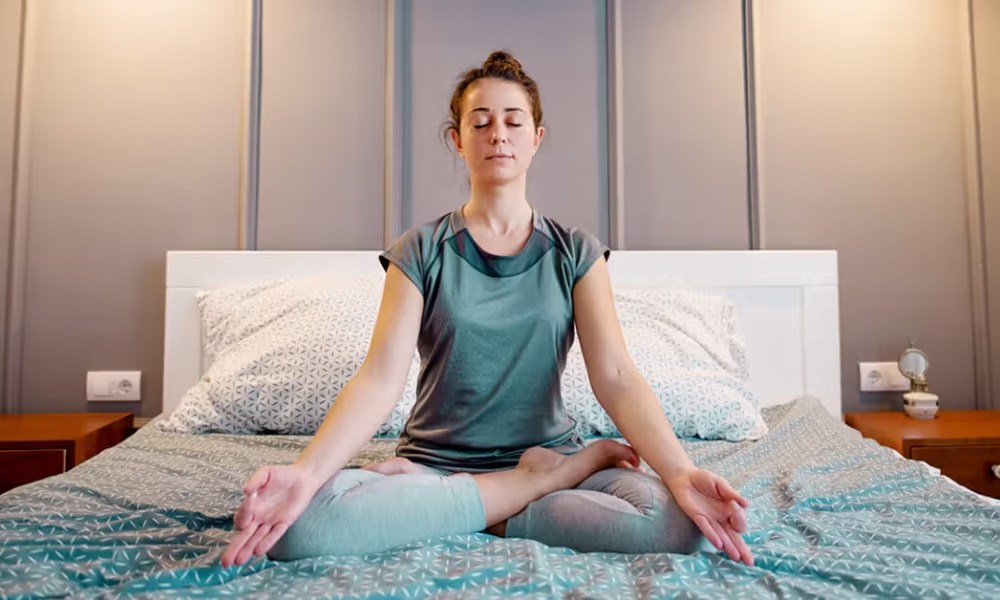Last Updated on May 22, 2025 by Kavya K
In today’s fast-paced world, winding down at night can feel like an impossible task. With the demands of work, family, and an ever-present digital world, many people struggle to quiet their minds and fall into restful sleep. Yet what happens in the final hours before bedtime plays a crucial role in determining the quality of your sleep and your mental clarity the next day. A structured night routine isn’t just about brushing your teeth and switching off the lights it’s a chance to reset your mind, nourish your body, and prepare your brain for deep rest. Implementing a few simple yet powerful night routine hacks can dramatically improve your sleep quality, reduce stress, and enhance your ability to think clearly and stay focused. Let’s dive into the essentials of an intentional night routine that supports both restorative sleep and mental wellness.
Start with a Consistent Sleep Schedule
The foundation of any effective night routine begins with consistency. Going to bed and waking up at the same time each day even on weekends helps regulate your circadian rhythm, your body’s natural sleep-wake cycle. When this internal clock is stable, it becomes easier to fall asleep and wake up without feeling groggy. A consistent sleep schedule also supports hormone balance, digestion, brain function, and emotional health. People often underestimate how powerful it is to give the body a predictable rest pattern. If you keep changing your sleep time, your brain stays confused and never gets a chance to fully restore itself overnight. By training your body to expect sleep at a certain hour, you condition your system to relax more naturally in the evening. Even if you’ve had a stressful or busy day, your body will respond to the signal that it’s time to unwind and prepare for rest.
Limit Screens and Blue Light Exposure
One of the most important hacks for improving sleep is reducing screen time in the hours leading up to bed. Smartphones, tablets, laptops, and TVs all emit blue light, which interferes with melatonin production the hormone responsible for making you feel sleepy. When you’re exposed to blue light, your brain gets the signal that it’s still daytime, making it harder to wind down. That’s why many sleep experts recommend turning off screens at least 30–60 minutes before bedtime. If avoiding screens entirely isn’t possible, consider using blue light blocking glasses or switching your devices to night mode to reduce the impact. This small adjustment can dramatically improve how fast you fall asleep and the quality of your deep sleep. In place of screen time, try replacing your evening hours with low-tech activities like reading a book, journaling, or doing a light stretch routine. These habits ease your brain into rest rather than keeping it alert.
Create a Calm and Sleep-Friendly Environment
Your bedroom environment plays a vital role in how well you sleep. If your space is cluttered, too bright, or noisy, it can disrupt your body’s ability to fully relax. To foster a sense of calm and serenity, keep your bedroom cool, dark, and quiet. Use blackout curtains to block out light, earplugs or white noise machines to drown out disruptive sounds, and remove any unnecessary electronics from the room. The goal is to create a sanctuary that your brain associates with rest and recovery. Choose soft lighting in the evening, such as warm-colored lamps or salt lamps, to signal that it’s time to wind down. Scent can also have a calming effect—lavender essential oil, in particular, has been shown to promote relaxation and improve sleep quality. Making your bedroom an inviting and peaceful place trains your body to transition more smoothly from wakefulness to restful sleep.
Use Journaling to Clear Mental Clutter
One often-overlooked aspect of a night routine is mental clarity. If your mind is racing with thoughts, worries, or to-do lists, it can be hard to settle down. A simple yet powerful solution is journaling. Taking just 10 minutes each evening to write down your thoughts, emotions, or things you’re grateful for can help offload mental clutter and bring emotional relief. You might also consider writing down tasks for the next day—this helps you feel more organized and less anxious about what’s ahead. Journaling doesn’t need to be complicated. Just grab a notebook and let your thoughts flow. The act of writing slows your mind, helping you process your day and shift into a more relaxed state. Over time, this nightly habit can improve emotional intelligence, reduce anxiety, and help you develop a more intentional and mindful life.
Wind Down with a Relaxing Physical Ritual
Incorporating a physical activity into your night routine can signal to your body that it’s time to relax. This doesn’t mean an intense workout rather, gentle and calming movements that help reduce tension. Light stretching, yoga, or even a warm shower can relax tight muscles and ease physical stress built up during the day. A hot bath with Epsom salts can further enhance relaxation by boosting magnesium levels and soothing your nervous system. These physical rituals not only promote sleep but also give you a sense of grounding and presence. The key is to perform them slowly and mindfully, focusing on your breath and bodily sensations. This mindful attention to your body helps create a bridge between your busy day and a restful night. It’s about telling your system, “The day is done. It’s safe to rest now.”
Avoid Heavy Meals and Caffeine Before Bed
What you consume in the evening also impacts your sleep and mental clarity. Eating heavy meals too close to bedtime can cause indigestion and restlessness, while caffeine even in the late afternoon can linger in your system and keep you alert. Instead, opt for a light and balanced dinner, ideally eaten at least two to three hours before bed. If you need a snack later on, choose something light and sleep-friendly like a banana, almonds, or a cup of chamomile tea. These options support your body\’s natural sleep chemistry rather than disrupt it. Avoid alcohol as well it may make you feel drowsy at first, but it actually reduces the quality of your deep sleep and can leave you feeling groggy in the morning. Making smarter evening food and drink choices is a small change that can lead to more restful sleep and better brain function the next day.
Practice Gratitude or Meditation Before Sleeping
The final minutes before you drift off to sleep are powerful. What you focus on during this time often carries into your subconscious mind and influences your emotional state. Instead of replaying stressful moments or mindlessly scrolling through social media, use this time to cultivate peace and gratitude. A short meditation, even five minutes of deep breathing, can calm your nervous system and prepare your mind for sleep. Guided meditations focused on body relaxation or gratitude are especially effective in transitioning from an alert state to one of rest. You can also mentally list things you’re grateful for this simple practice has been shown to reduce anxiety, improve sleep, and elevate mood. Over time, ending your day with mindfulness helps you sleep better and wake up with a more positive and clear mental state.
Conclusion: Transform Your Evenings to Transform Your Life
Your night routine is more than just a string of habits it’s a foundation for better sleep, improved mental clarity, and overall well-being. When you intentionally wind down at the end of the day with calming activities, healthy choices, and mindful rituals, you set yourself up for a more focused, energized, and emotionally balanced tomorrow. Each small hack whether it’s turning off your phone, dimming the lights, writing in a journal, or sipping herbal tea acts as a gentle signal to your body that rest is near. Over time, these nightly rituals can rewire your brain for deeper sleep and clearer thinking. You don’t need an elaborate routine to see results just consistency, simplicity, and a commitment to self-care. With these night routine hacks, you can begin transforming your evenings into a powerful tool for lifelong health and mental clarity.










